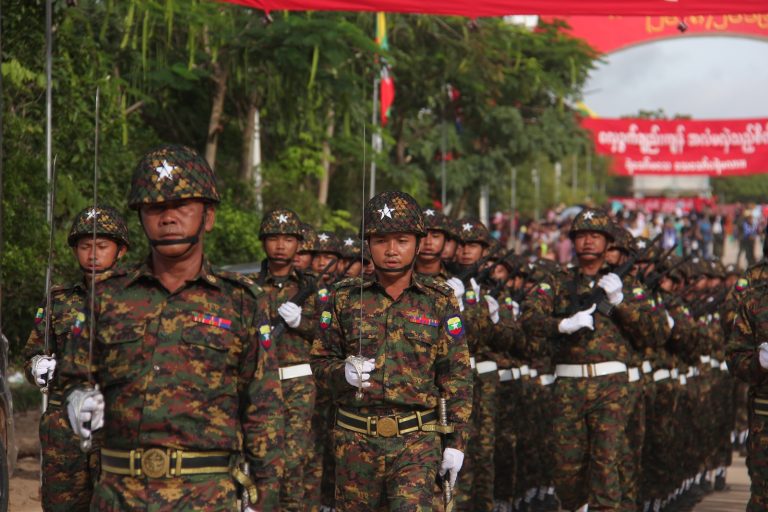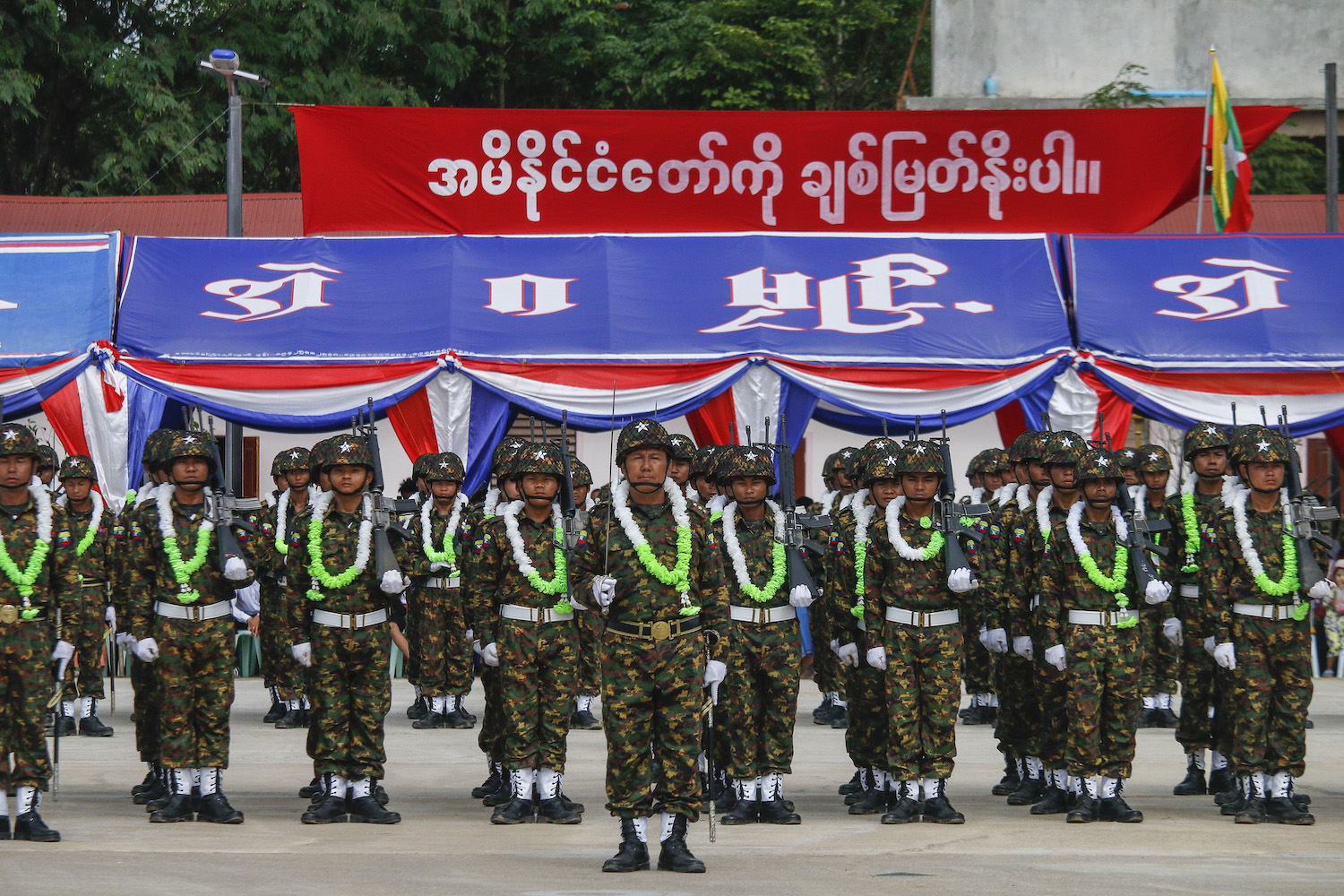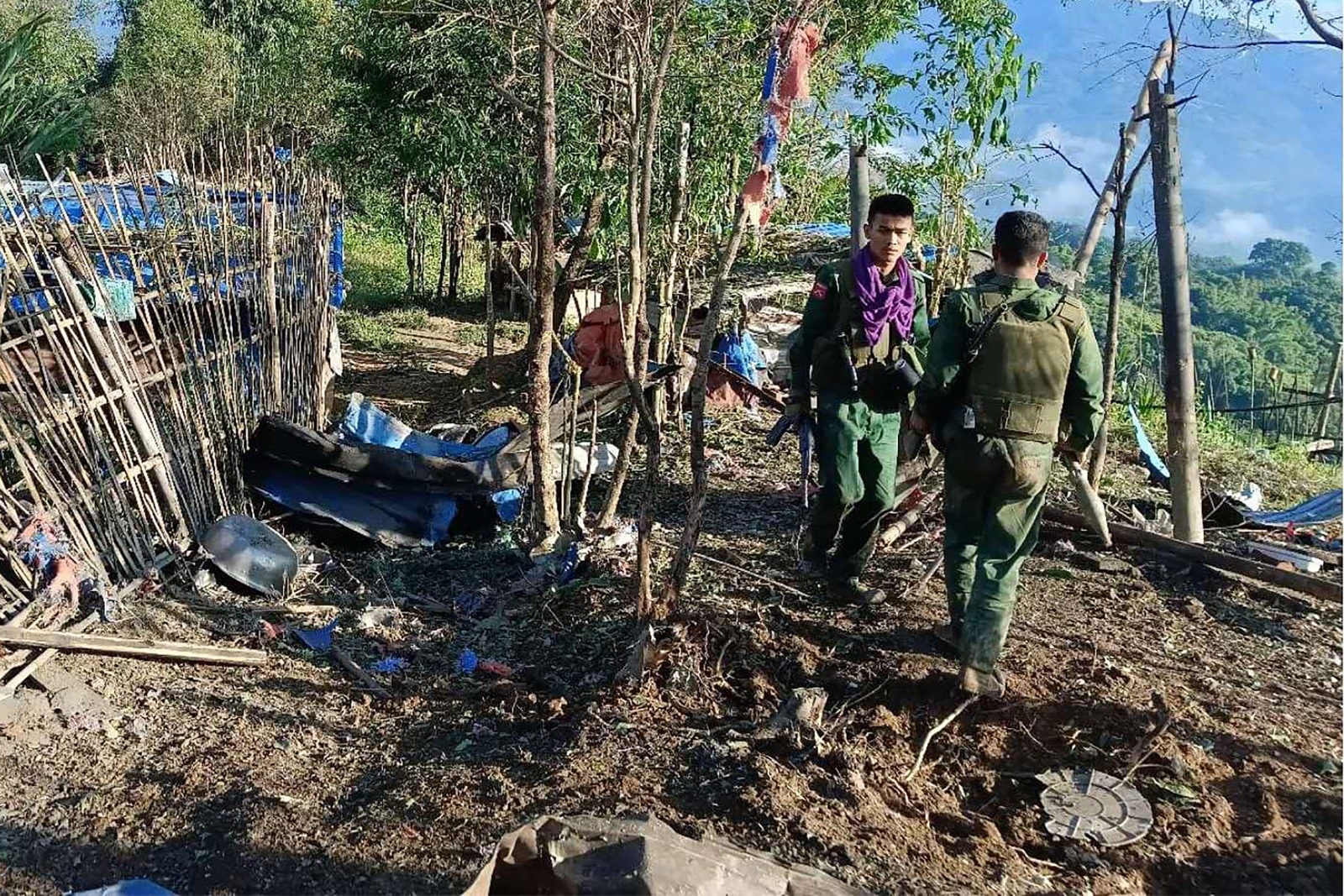Yatai International Holdings has sparked significant controversy with its Shwe Kokko New City project in Kayin State near the border with Thailand, and has been accused of displacing villagers, illegal gambling, money laundering and skirting government regulations.
The project has been the focus of many investigations, including by Frontier, the United States Institute of Peace, International Crisis Group, and the Karen Peace Support Network. Frontier also recently examined the background of Yatai’s little-known chairman, Mr She Zhijiang, also known as She Lunkai and Tang Kriang Kai.
The Myanmar government recently announced plans to investigate the Shwe Kokko project, which is a partnership between Yatai and a company owned by the Kayin State Border Guard Force. The Chinese government has sought to distance itself from Shwe Kokko and Yatai, with the Chinese ambassador to Myanmar telling Senior General Min Aung Hlaing recently that the project is not related to China’s ambitious Belt and Road Initiative, contradicting earlier claims by Yatai.
Amid increasing opposition to the project, Yatai recently hired a PR firm in Myanmar and launched a charm offensive in the media, issuing press releases and agreeing to a few interviews.
In Frontier’s first interview with a representative of Myanmar Yatai International Holding Group, the company’s vice president, Mr Harry Wang, said it wanted to be a model for Chinese investors but insisted it was not responsible for monitoring the activities of other companies at the Shwe Kokko project site.
Visits to the Shwe Kokko site by Frontier as well as satellite imagery confirm that work began before the project received Myanmar Investment Commission approval and the development has gone far beyond what was approved by MIC in July 2018. What is your response?
At this moment we have ceased construction, and are waiting for [another] permit from the MIC. We would honestly like to apologise for this, as we had been under the assumption that we were building on private land. To those impacted by our lack of communications – locals, CSOs, NGOs and observers – we truly regret this, and are making amends to [build] trust between our operations and relevant stakeholders.
What is your opinion of the government’s decision to form a tribunal to investigate the Shwe Kokko project?
We would like to make the government tribunal know
that Yatai is committed to being an honest and responsible investor in Myanmar,
and thus welcomes the tribunal’s enquiry into the Shwe Kokko project. We will
be making ourselves available to answering questions to the best of our
abilities from relevant authorities on our project and cooperate where needed.
We also wish to state here that we want to be in full compliance with the laws
and regulations set by the Myanmar government.
What is Yatai’s response to accusations that the project includes illegal
gambling venues?
Yatai wishes to emphatically state that we are not operating illegal casinos – neither now nor in the future – and are waiting for permits to operate [casinos]. We would never endorse gambling being done illegally. We seek to distance ourselves from operations that do not comply with rules and regulations.
If Yatai is not directly operating online gambling at Shwe Kokko, are other companies involved in online gambling at the Yatai site?
What other companies do is their business, not Yatai’s. We can only speak for our side in saying that we wish to be a catalyst for gainful opportunities for the local communities in Kayin State, as part of our planned developments. We would urge that all companies within our area abide by Myanmar laws and regulations.
How much support does the Yatai project have from the Chinese government?
Our chairman is simply a member of the China Federation of Overseas Chinese Entrepreneurs. The Chinese government is not in a relationship with us.
Is it correct, as Yatai has claimed, that Shwe Kokko is part of the Belt and Road Initiative?
We wish to clarify here that we were initially seeking association with the BRI, as our infrastructural and development synergised with the objectives of the BRI.
We would like to state that we distance ourselves from BRI, and have received no official endorsement from the Chinese government. We are striving to attract businessmen from all over the world, including but not limited to investors from Southeast Asian countries. We seek to make Shwe Kokko into an international development zone.
Yatai’s partner at Shwe Kokko is the Kayin State Border Guard Force, which is part of the Tatmadaw. How did Yatai establish relations with the BGF? Do you see any problems partnering with an armed group that is part of the Tatmadaw?
Yatai has a business relationship with the Chit Linn Myaing company. We are aware that the Chit Linn Myaing Company is spearheaded by members of the [Kayin State] Border Guard Force. Given their prominent role in the development of the local community in Kayin State, we had entered a business relationship with them.
Your partners in Shwe Kokko include BCB Blockchain and Fincy, a mobile money platform that uses BCB Blockchain technology. Why has Yatai chosen to partner with BCB Blockchain rather than use normal banking channels?
We believe that the partnership between Yatai and the blockchain company will truly help Myanmar towards the future.
Yatai’s chairman is She Zhijiang, who uses other names, including She Lunkai, and has businesses elsewhere in Southeast Asia. She Zhijiang says he made his fortune in the Philippines. When did he begin operating there, and how did he make his money?
Our CEO runs a number of businesses as part of a conglomerate, including those in the Philippines, which he had started a decade ago. The businesses in the Philippines include a tour agency, a spa and an online electronic services company – all legal ventures in that country.
Does Yatai have plans for other projects involving casinos elsewhere in Southeast Asia?
We are currently focused on setting Yatai as an example for Chinese investment to follow, as well as making amends for past missteps in communication with locals, a key stakeholder in our project.
In January 2017, She Zhijiang was granted Cambodian citizenship by royal decree. What process did he go through to get Cambodian citizenship? China does not recognise dual citizenship, so does that mean he is no longer a Chinese citizen?
[No response]
Just a few weeks after She Zhijiang received Cambodian citizenship, work began at Shwe Kokko. Was he waiting to receive Cambodian citizenship to start the project, and if so why? Or is it just a coincidence that it began a few weeks later?
Mr She Lunkai is a Cambodian citizen, having gone through the legal and regulatory channels in Cambodia in obtaining it. His decision for citizenship has been through a personal decision. Our chairman’s citizenship decision had been based on his commitment to his operations being in Southeast Asia, and his belief that Cambodian citizenship would offer easier ways to operate. We cannot comment further on this speculation.
The Kayin State BGF says there were 3,000 Chinese citizens working at Shwe Kokko until December 2019. What were they doing there? Are they all Yatai employees? If not, who do they work for? What is the visa status of the workers at Shwe Kokko? Are they working on a business visa and, if so, which government agency issued it?
We are not aware of how the BGF came to that figure. We can confirm that Yatai has between 100 to 200 Chinese nationals employed throughout any given time period during construction, all of them on proper business visas issued by the Ministry of Labor, Immigration and Population.
We hope that the rest of the companies operating in the [Yatai project] area process their workers as per the requirements of Myanmar law.







